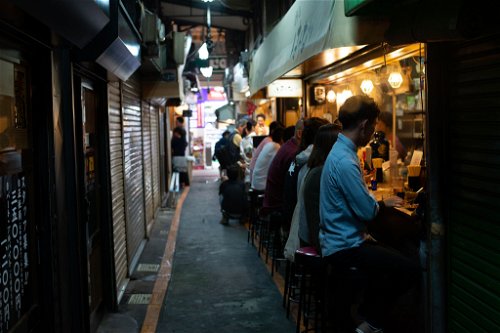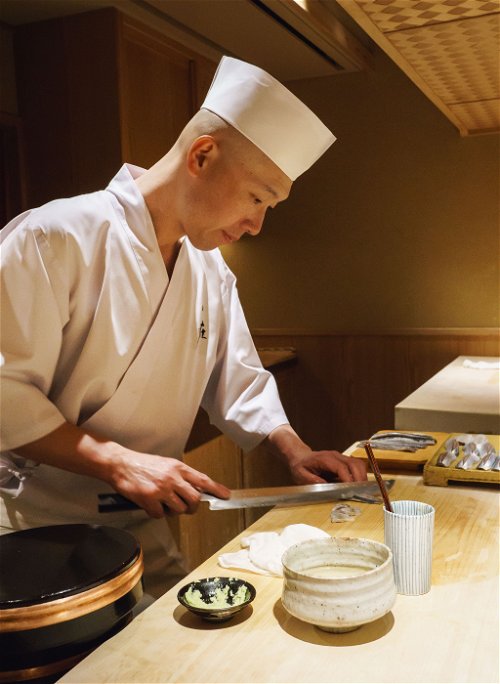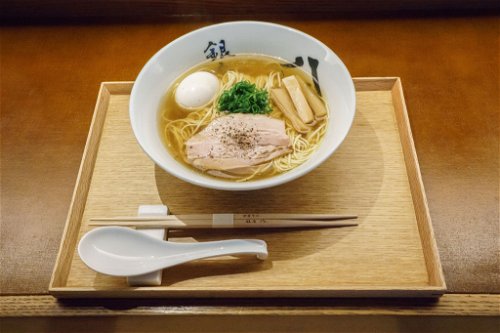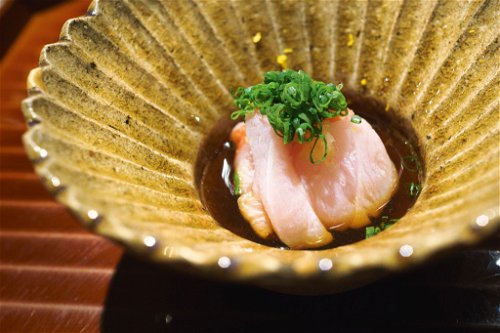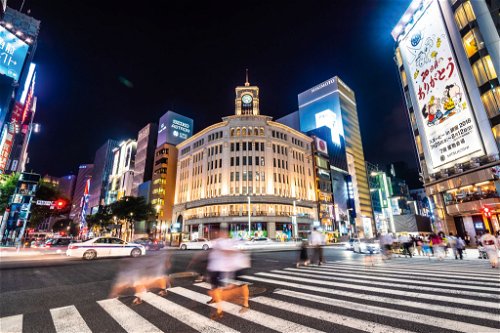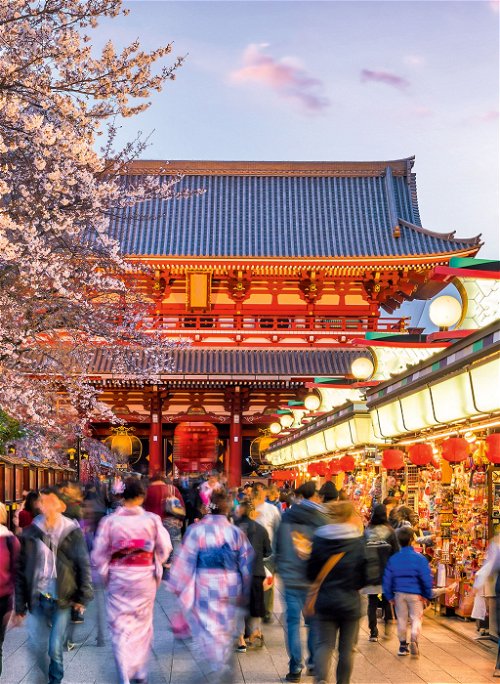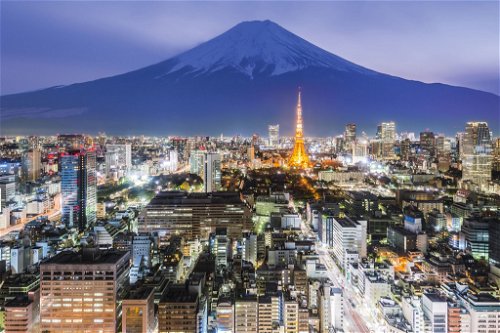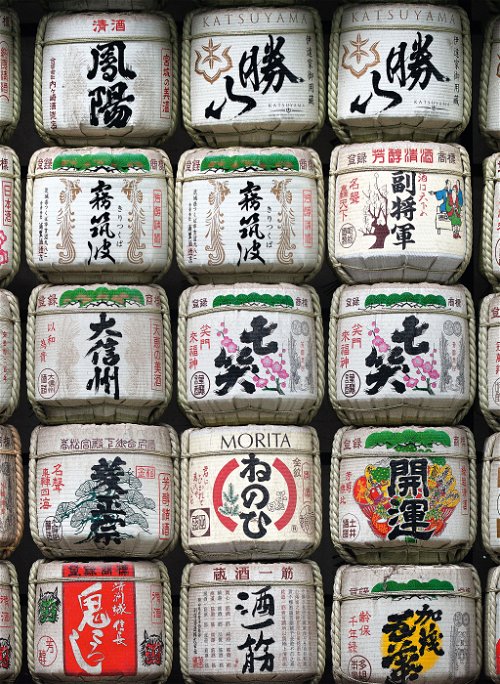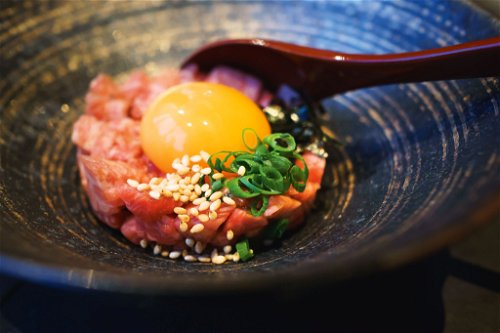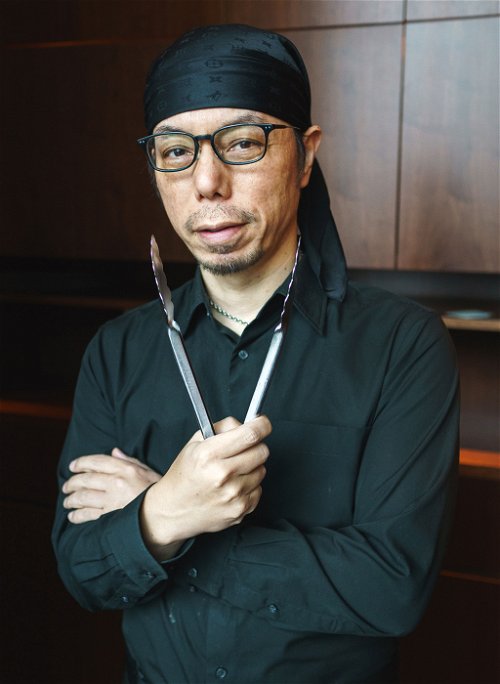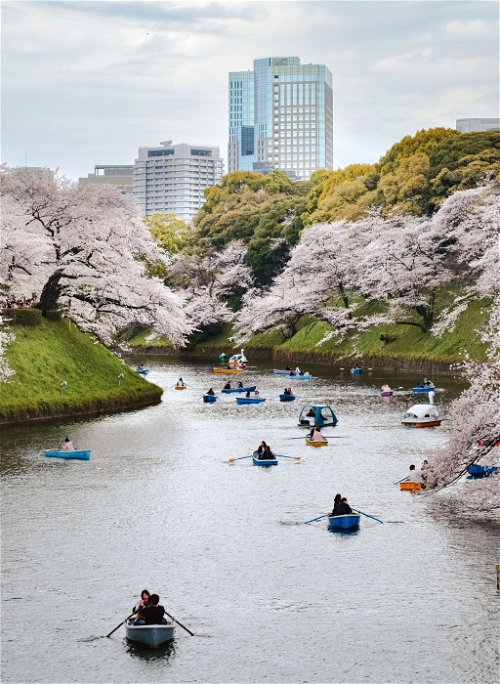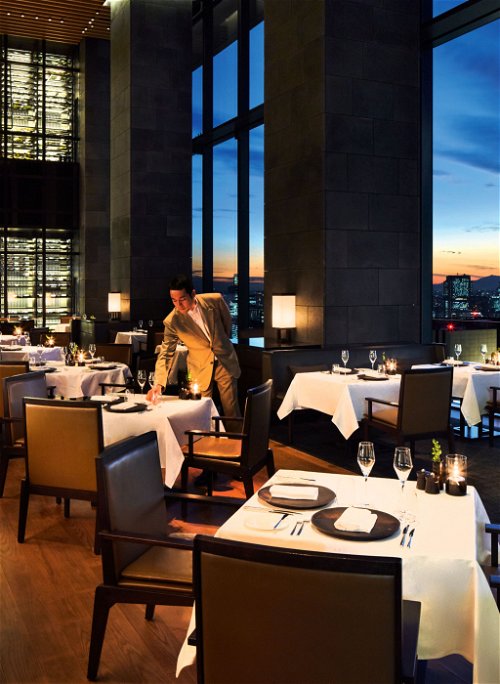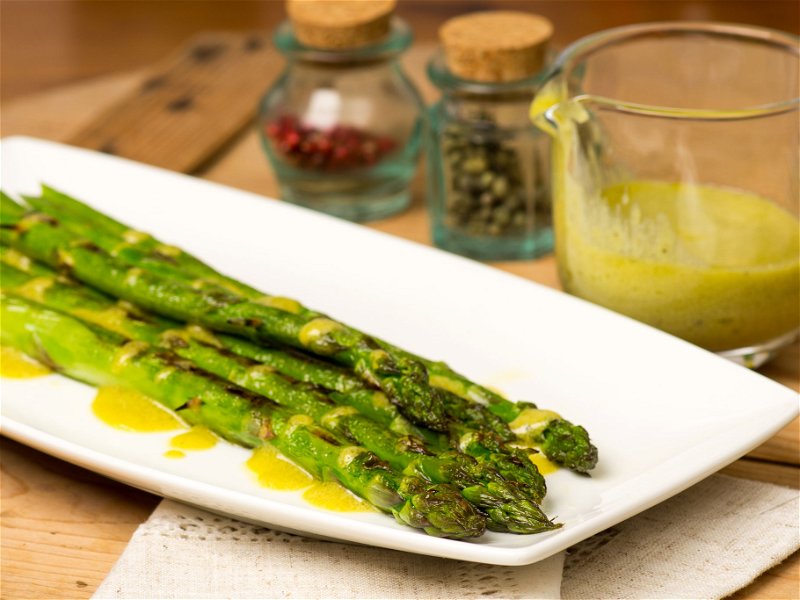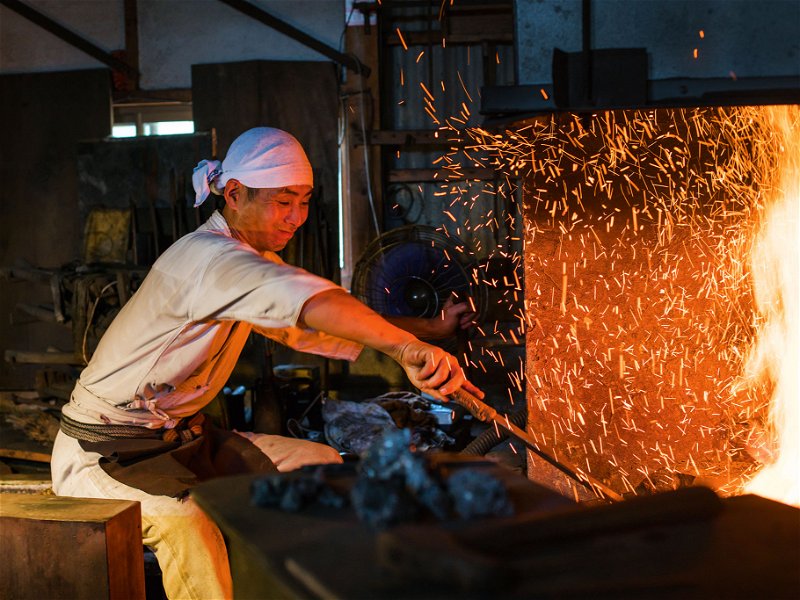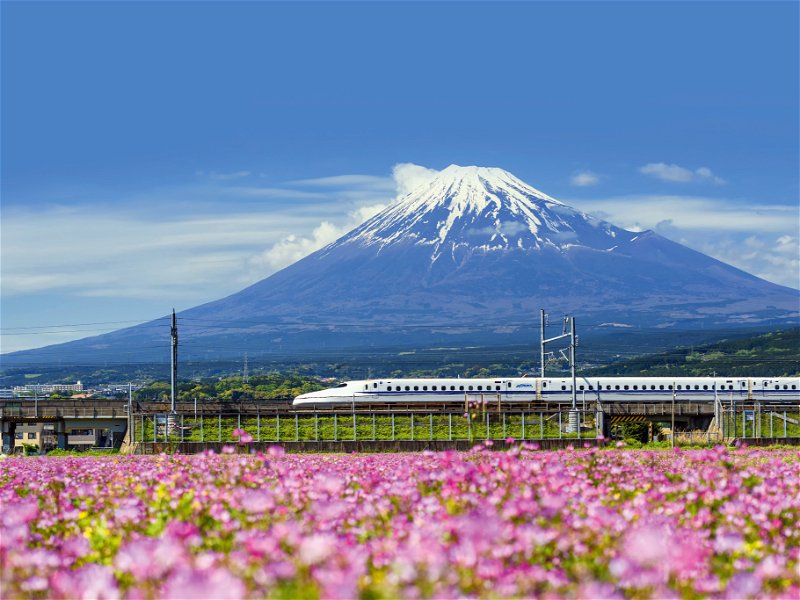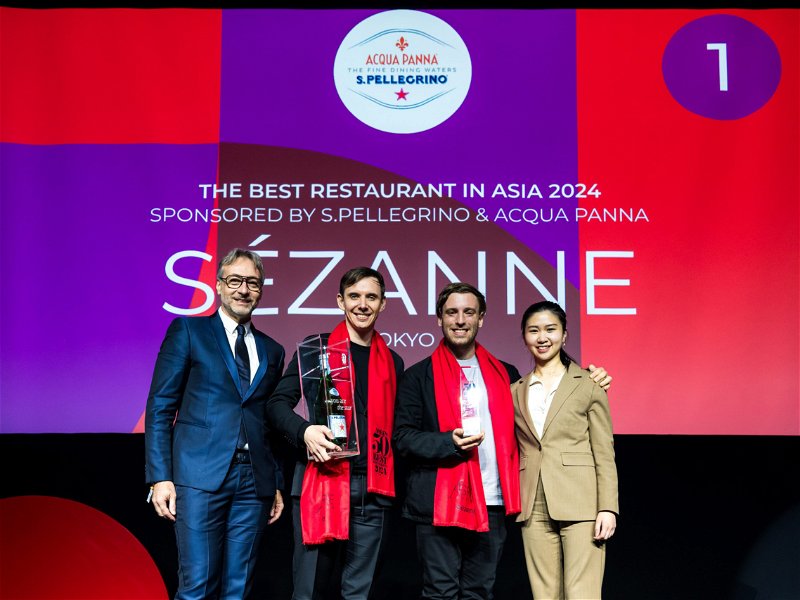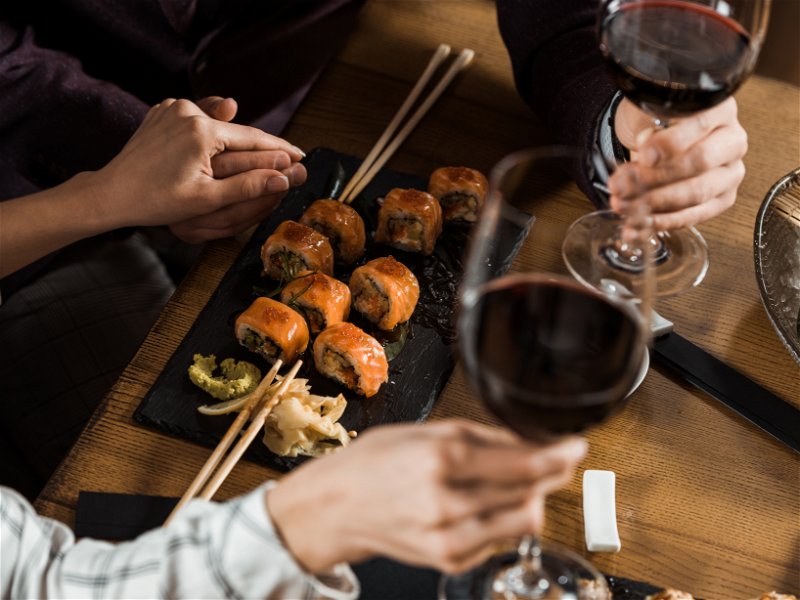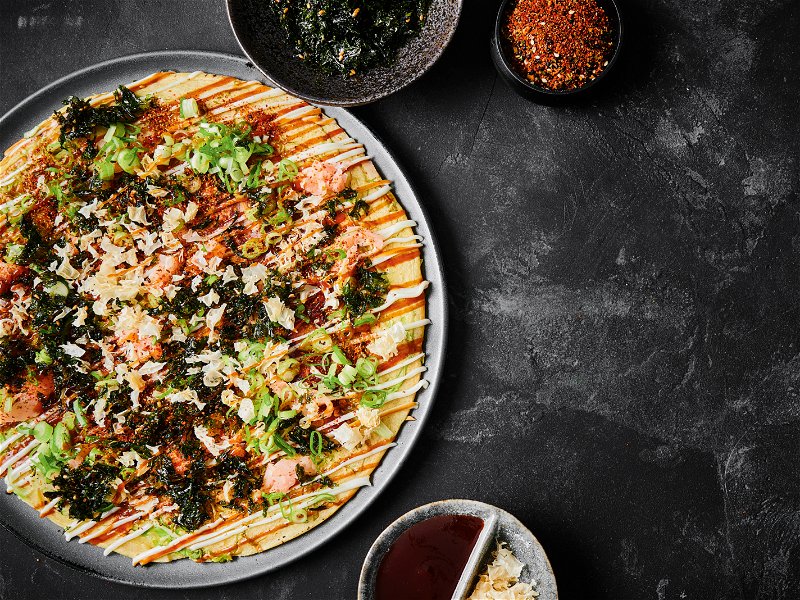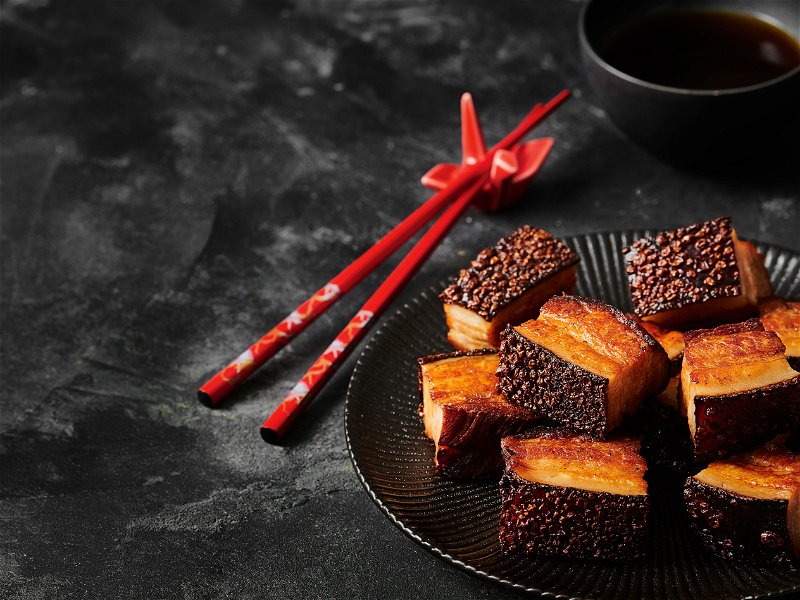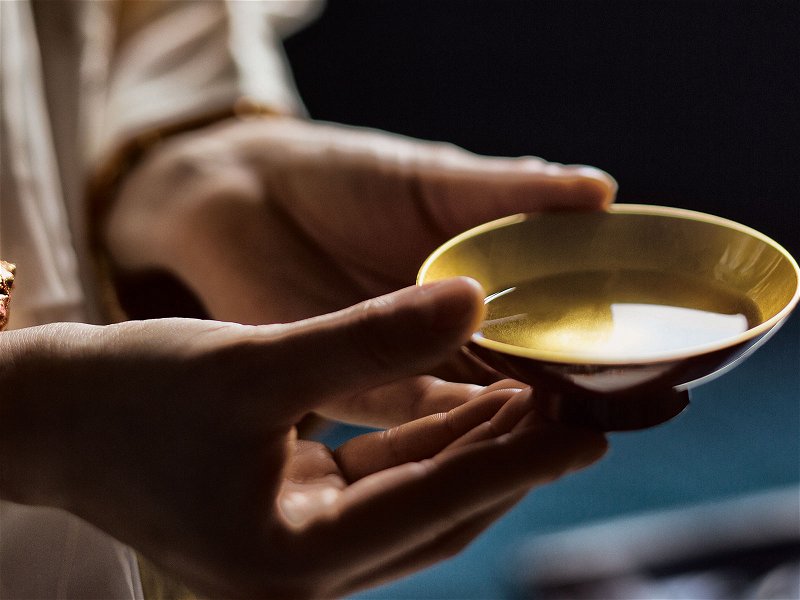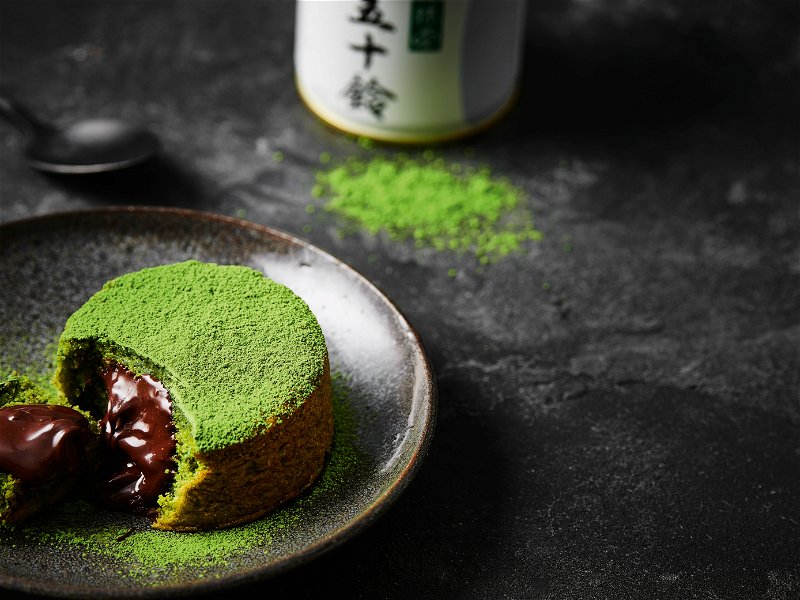Tokyo for foodies: the best insider tips for the mega-metropolis
If you want outstanding Japanese food, you have to go to Tokyo. True mastery is the result of years of dedication and appreciation of even the smallest details. A culinary journey to perhaps the most beautiful city in Asia.
You can get good sushi on every corner in Tokyo. And excellent sushi? You can go to the Hiroo embassy district, for example, to Takahiro Okada's "Sushi Zai" restaurant. The basis of an excellent sushi is not the fish, but the rice, the "shari", explains the master.
It starts with the right amount of water, the exact cooking time and temperature. The vinegar must be mixed in when the rice is still very hot, without much pressure, but with quick cutting movements. This is the only way it will spread without sticking to the rice. Finally, add the fish and a brush of soy sauce. Timing and precision. "You have to master the entire process, from the preparation of the ingredients to the final piece of sushi that the guest pays for at the end," says Okada.
He has been practicing this art for 28 years. The result is nothing less than a revelation. Only eight guests enjoy the omakase menu every evening, where the chef decides on the menu. There is no map, the price is nowhere to be found. You sit at a simple wooden counter and watch the food being prepared.
The artful miniatures Okada presents take you into a world of flavours you have never experienced before: steamed eel with cherry blossoms; fresh sea urchin; monkfish liver pâté with wasabi and seaweed tempura; abalone risotto; deep-fried sea bream with scales. Then come the nigiri, which you take in your fingers and eat whole: squid, buttery tuna, Pacific herring (kohada), sardine, sea bass, shrimp, conger eel. It all tastes so exciting and harmonious at the same time that you go out into the night completely euphoric. This could also be due to the wine and sake that accompanies the menu on request, which is rather atypical for high-end sushi in Tokyo.
In any case, anyone who imagines Okada as a strict authority who ungraciously defends the old traditions will be surprised. The chef, who cooked in a Michelin-starred restaurant before opening "Sushi Zai" in 2019, enjoys chatting with his guests and laughing a lot. He takes his craft seriously, but the experience in his restaurant should be casual. "The sushi world is much more open today than it used to be," he says. And it is just one of many worlds that open up in this legendary city.
Promise of happiness
Tokyo is a land of milk and honey that magically attracts gourmets and foodies, but also anyone else who is curious, then enchants them and finally leaves them changed. Japan's capital - once called Edo - delivers a constant rush for the senses, not just the tongue.
You drift through this mega-metropolis and lose your bearings again and again, feeling as if you are under tension; from the neon glow of the high-rise facades, from the bustle of people in the metro stations, from the flashing and beeping of the pachinko arcades, from the consumer frenzy and promise of happiness in the luxury department stores, from all the signs, images and gestures that you don't understand. And of smells and tastes that sometimes seem familiar and often strange. What it means to eat Japanese food will be judged differently after a visit than before.
Concentrated top cuisine
No other city concentrates as much top cuisine as Tokyo. The Michelin Guide currently lists twelve restaurants with three stars, 33 with two stars and 137 with one star. Yes, you can eat expensively in Tokyo and you can hardly cope if you want to try every recommendation of rank and name. But good things don't have to be expensive. The 126 Bib-Gourmands also bear witness to this.
In Ginza, the poshest part of the city where old Tokyo money is carried around, Yasushi Matsumura prepares a world-class ramen soup for 1,200 yen. Less than ten euros, with foie gras and truffle ravioli just under twice as much. The chef can look back on more than 30 years of experience in refined French gastronomy and has cooked in top hotels.
Here in his "Ginza Hachigo", an unassuming restaurant with just six seats in front of the open kitchen, he celebrates simplicity with a noodle soup that is affordable for everyone. "Now, towards the end of my career, I want to be closer to people again and see their smiles," says Matsumara. This is likely to happen frequently. What sets his ramen soup apart from others is that he does not use sauce concentrate, which is usually used as a condiment. The broth resembles a consommé. Its flavour is created by boiling down chicken, duck, scallops, dried tomatoes, kombu seaweed, shitake mushrooms, ginger, spring onions - and prosciutto. The dedication to a simple dish that is perfected is also inspiring at "Ginza Hachigo". Locals and out-of-towners alike are eager to make a reservation. Every day, 70 to 80 guests are served. From 11 a.m. to 12.30 p.m. you can get a seat without booking, but then you often have to wait several hours beforehand.
Voyage of discovery
The choice of first-class restaurants in Tokyo is immense. But demand also seems to be huge, and relevant addresses are spreading quickly. Many wealthy customers come from China, Korea and Taiwan, for example, and are used to excellent Asian cuisine. Places at the table are correspondingly difficult to come by. It is best to ask the concierge at the hotel. But Tokyo also offers countless delicacies that don't require a complex booking procedure, for which you just have to plunge into the hustle and bustle with an appetite. Classics such as sashimi, tempura, yakitori skewers and soba noodles can be ordered with beer and sake in one of the countless izakayas, the traditional Japanese pub.
A popular teppanyaki dish is okonomiyaki, which is often somewhat unfortunately referred to as Japanese pancakes. Near Shibuya Station with its famous pedestrian crossing, we recommend the "Imari". The Tokyo version of the dish is called monjayaki and the batter is much more liquid. This speciality is served at Tsukishima Statio where dozens of Monja snack bars are lined up.
A menu like an orchestra
Chankonabe, the sumo wrestlers' stew, is available in the Ryogoku district, where the important sumo stables are located, for example at "Tomoegata Chanko". You should also try unagi: grilled and marinated freshwater eel. If you want to round off the savoury treat with Japanese sweets, visit a wagashi café, such as the elite teahouse "Higashiya" in Ginza. Photos strictly forbidden! Kakigori, shaved ice, is still a hit. The trendy "Azuki to Kiori" has opened in Shinjuku, where reservations are mandatory and the profit margin is certainly generous. The same applies to the spectacle they put on at "Koffee Mameya Kakeru", three omakase-style barista courses; just let yourself be surprised.
A culinary tour of Tokyo would hardly be complete without Japanese wagyu beef. A top address for this is "Yoroniku", the most recent branch of which has opened in Azabudai Hills, in a chic skyscraper with fine dining and luxury boutiques. Here you can meet the founder and head chef Hideyuki "Vanne" Kuwahara, who started out as a DJ and discovered his passion for yakiniku, Japanese barbecue. He tells how he visited his favourite restaurant 70 times a year until he could no longer let go of his own ideas. Today, Kuwahara is regarded as an innovator who has established his own style. The chef and his kitchen team roast every piece of meat to perfection for the guest at the table , which was previously unheard of.
The musician compares his special menu to an orchestra. The quality of the meat doesn't mean anything. "Just because you have a Steinway piano doesn't mean your music sounds good." Ingredients and courses must work together in harmony. Kuwahara appears as a brilliant conductor. The first bite melts in your mouth, raw like sashimi. The master then serves various delicious cuts, including tongue and stomach, to slowly lead up to the climax: Katso Sando, panko-crusted Chateaubriand between toasted bread with an aromatic, thick sauce - possibly the best beef sandwich in Tokyo.
To put the dimension of the taste experience into perspective, Kuwahara draws another comparison: "It's like guitar music before and after Van Halen." In Tokyo, this city of discreet and modest masters, such self-confidence may seem unusual but it is hard to contradict.
Addresses
Restaurants
Tempura Kondo
In his gourmet temple in one of the most exclusive streets of Ginza, chef Fumio Kondo masterfully serves up deep-fried dishes. The icon of Japanese tempura art is considered a pioneer because he elevated vegetables from an accessory to an actual sensation.
Sakaguchi Bld. 9 F, 5-5-13 Chuo City
Ginza, 104-0061 Tokyo
T: +81 3 5568 0923, tempura-kondo.com/en
Narisawa
Satoyama are places where people still live in harmony with nature. This philosophy influences the unusual creations of celebrity chef Yoshihiro Narisawa. The pioneer of the farm-to-table movement literally brings the Japanese forest to the plate, for example with tree bark and wild flowers - an incomparable experience.
2-6-15 Minami Aoyama
Minato City, 107-0062 Tokyo
T: +81 3 5785 0799, narisawa-yoshihiro.com
Kotaro
Izakaya, just south of Shibuya Station, is an unassuming eatery but it's not easy to get a seat; you should give it a try though. Chef Kotaro Hayashi serves a convincing selection of classics in a cosy after-work atmosphere. The potato salad with smoked, soft-boiled egg is highly praised.
28-2 Sakuragaokacho
Shibuya City, 150-0031 Tokyo
T: +81 3 5428 5705
Hotels
Aman Tokyo
The understatedly elegant luxury hotel is enthroned in a skyscraper above the financial district of Otemachi. Its interior reflects the clear, straightforward Japanese design tradition that instantly calms the mind. The wide lobby on the 33rd floor radiates a sense of calm; anyone looking out of the pool at the sea of lights will finally find their centre.
The Otemachi Tower, 1-5-6 Ōtemachi
Chiyoda City, 100-0004 Tokyo
T: +81 3 5224 3333, aman.com
The Kitano Hotel Tokyo
The Relais & Châteaux boutique hotel in the centrally located Hirakawachō district is recommended as a soothing retreat. Spacious, stylishly furnished rooms, roof terrace, first-class service.
2-16-15 Hirakawachō
Chiyoda City, 102-0093 Tokyo
T: +81 3 3288 0015, kitanohotel.co.jp/tokyo/
Park Hyatt Tokyo
The five-star hotel in Shinjuku Park Tower has rooms that offer a magnificent view of the sacred Mount Fuji. The "New York Bar" on the 52nd floor became a legend thanks to the movie "Lost in Translation" with Bill Murray and Scarlett Johansson.
3-7-1 Nishishinjuku
Shinjuku City, 163-1055 Tokyo
T: +81 3 5322 1234, hyatt.com
Drinks
The Bellwood
Atsushi Suzuki learned his trade in New York and Shanghai, among other places, before realising a project close to his heart at home in Tokyo. His bar in Shibuya is based on the tradition of Japanese coffee houses from the Taisho era. The cocktail menu is based on a traditional kaiseki menu, the vibe is unconventionally sociable. You should try the Melon Cream Paradise (pisco, pandan, Champagne, gorgonzola).
41-31 Udagawacho, Shibuya City
150-0042 Tokyo
T: +81 3 6452 5077
Bar Benfiddich
Although firmly established in the bar scene, this institution in Shinjuku exudes the charm of a moonshine establishment. Bar chef Hiroyasu Kayama sources many of his ingredients from a farm outside Tokyo and distils them to make absinthe, for example.
1-13-7 Nishishinjuku
Shinjuku City, 160-0023 Tokyo
T: +81 3 62580309
Virtù
The hotel bar on the 39th floor of the "Four Seasons" in Otemachi surprises with its opulence and openness, which is rather atypical for Tokyo. There is a communal table with 16 seats where strangers can strike up a conversation. Not only the cocktails are impressive, but also the art deco interior. Drink recommendation: the "Takara" with Hekishu whisky.
Four Seasons, 1-2-1 Ōtemachi
Chiyoda City, 100-0004 Tokyo
T: +81 3 6810 0655, fourseasons.com
Don't miss out!
Sign up now for our newsletter.

